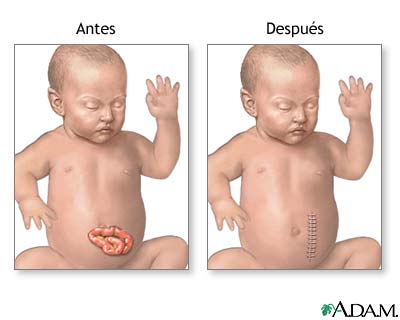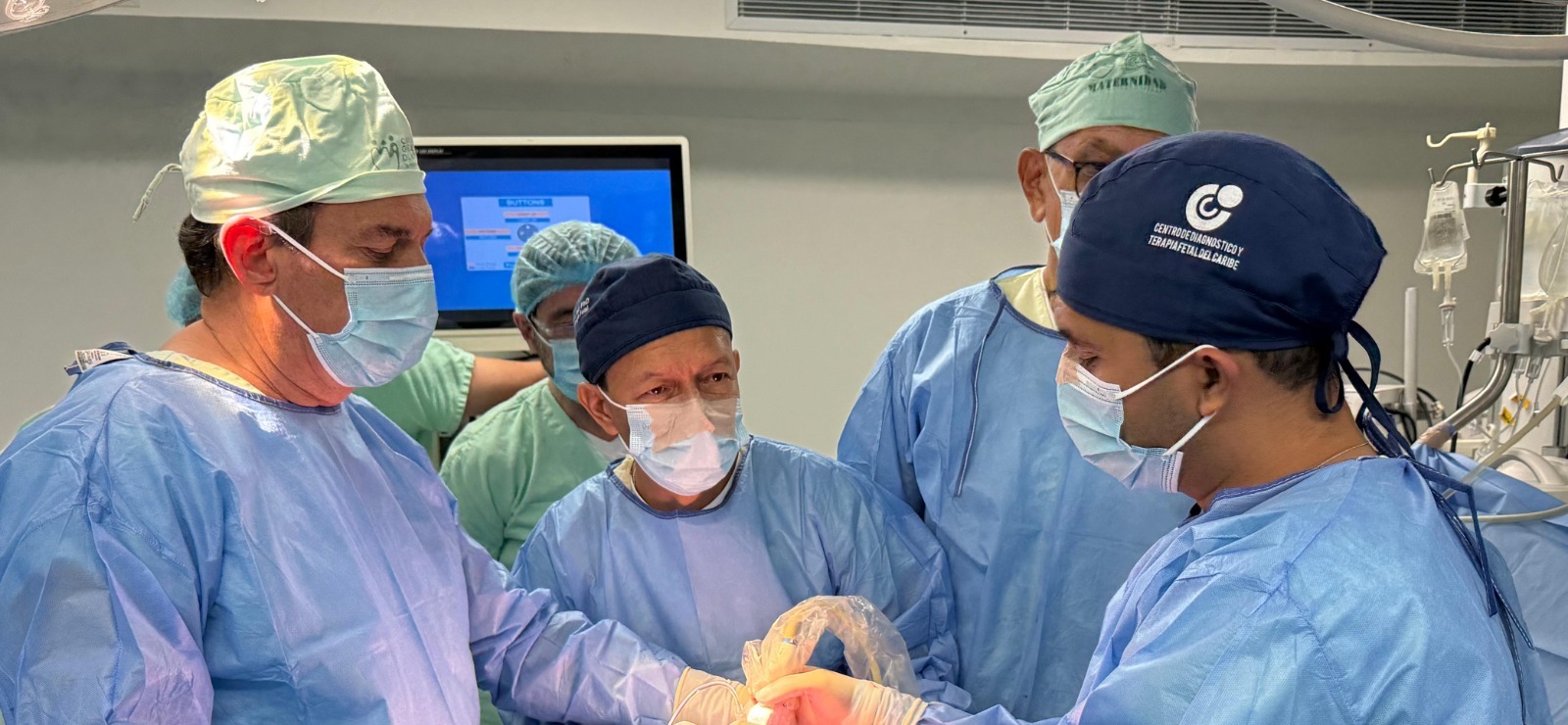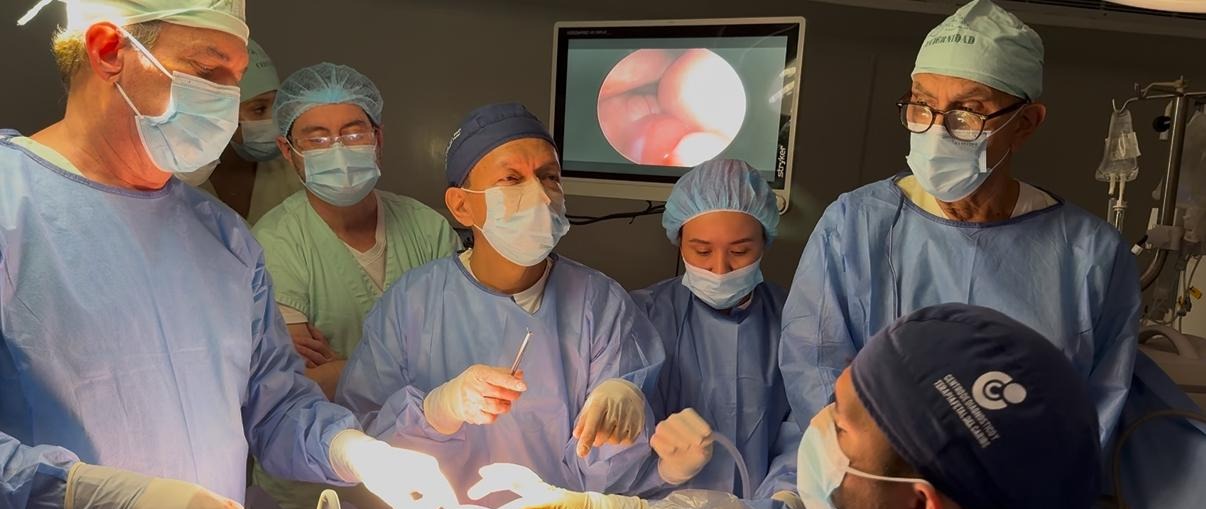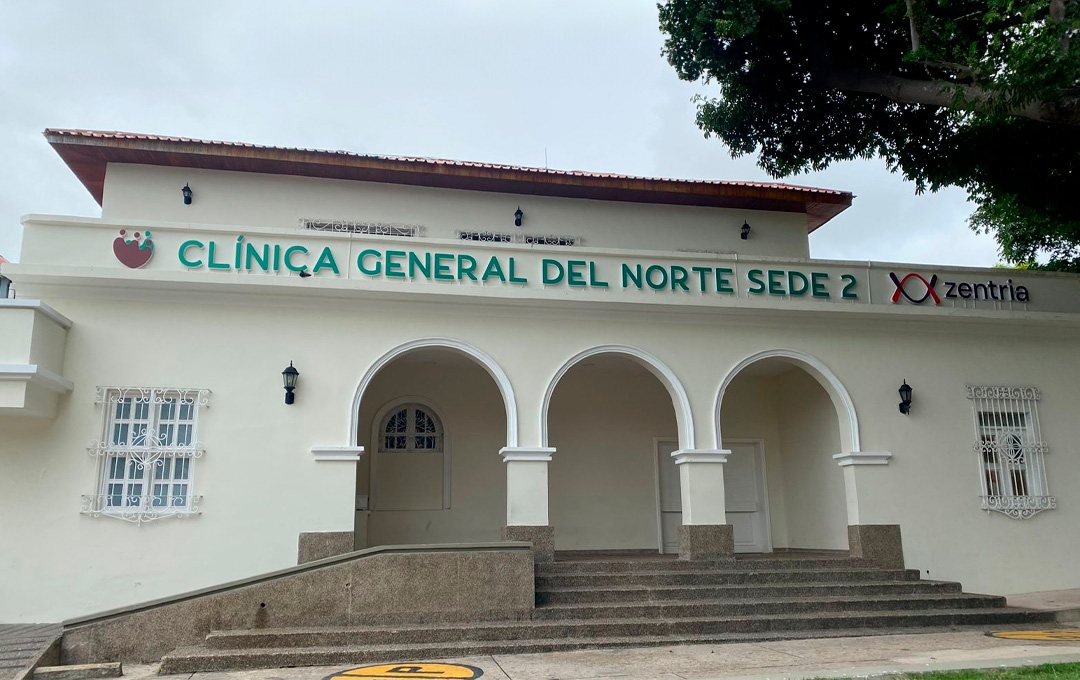Colombian doctors make history by operating on and curing a baby with a rare and deadly disease inside the womb.

In 1940, the first person in the world to survive gastroschisis underwent successful surgery. This condition is, essentially, a defect in the fetal abdominal wall that causes the intestinal organs to protrude outside the body while still pregnant. It is typically diagnosed from the 12th week of pregnancy and affects between 4 and 7 out of every 10,000 live births worldwide. However, until 2025, the only way to treat this condition was to wait until the child was born to undergo a complex surgical procedure, which also did not guarantee success and was extremely expensive. This year, a multidisciplinary team of Colombian doctors has just changed the future for those who develop this condition.
In an unprecedented medical achievement, a group of Colombian specialists performed the world's first successful intrauterine fetal surgery to correct gastroschisis. The procedure was performed by the fetal surgery and therapy team at the Clínica General del Norte in Barranquilla, led by perinatologist Miguel Parra Saavedra. This milestone, Parra said in an interview with EL TIEMPO, marks a turning point in fetal medicine for treating gastroschisis worldwide.
“ Until this year, this condition was treated globally only postnatally, which has several drawbacks because it is progressive. That is, while the baby is inside the mother with its intestines outside her body, a disproportionate growth occurs because they don't grow at the rate they should. Additionally, this intestine can twist, meaning it turns on itself, damaging circulation. This can cause the baby to die in the womb or lose part of its intestine at birth. In Latin America, approximately 1 in 3 children with this condition die. This gives us hope,” Parra emphasizes.

Although it is diagnosed early, gastroschisis should be treated until the baby is born. Photo: MedlinePlus
Gastroschisis is a defect that causes a baby's intestines to protrude outside the abdomen and float in the mother's amniotic fluid, impairing their function and putting the fetus at risk. "Until now, this condition was treated exclusively after birth, but that led to extremely high mortality, prolonged stays in intensive care units, and multiple surgeries for the baby," explains Dr. Parra.
What the interdisciplinary group of specialists at Clínica General del Norte, part of the Zentria Group, did was develop an innovative two-step surgical protocol that allowed doctors to correct the baby's malformation while it was still in gestation.

Interdisciplinary fetal surgery and therapy team at Clínica General del Norte. Photo: Clínica General del Norte
In this regard, the first part of the procedure was performed in January of this year, which consisted of muscle relaxation of the fetal abdominal wall with botulinum toxin. This substance, known for its use in aesthetic and neurological treatments, was applied to relax the fetal abdominal muscles, facilitating the safe reduction of the exposed organs and minimizing the risk of postoperative complications. Thanks to this strategy, the pressure inside the baby's abdomen was reduced, optimizing the success of the surgery.
Subsequently, at 25 weeks, the second part of the intervention was performed via fetoscopy, a minimally invasive technique that allows surgery inside the uterus without having to completely open the mother's abdomen. After the surgery, the mother continued her pregnancy normally under the care and constant monitoring of the Clinic's team. "For the first time in the history of medicine, a baby with a major malformation was cured inside the uterus and born completely healthy," says Parra.
The baby was born vaginally at 35 weeks, a normal, healthy delivery. He was discharged a few days later and is now two months old with no complications related to gastroschisis. "This type of intrauterine surgery not only saves lives, but also represents a revolution in public health due to its cost savings and reduced complications," Parra adds.

The procedure was performed by the team at Clínica General del Norte earlier this year. Photo: Clínica General del Norte
In countries like the United States, a case of gastroschisis can cost up to $10,000 a day in hospital, and a baby can spend one to three months in intensive care units. It's important to note that, in Colombia, fetoscopy surgery is covered by the Health Benefits Plan (PBS), facilitating access to this revolutionary medical advancement.
Parra emphasizes that this achievement was possible thanks to the high-level work of the professionals who make up his team, which includes Cristóbal Abello (pediatric surgeon and endoscopist), Yesid Miranda (fetal surgeon), Guido Parra (gynecologic endoscopist), William Contreras (neurosurgeon), and Juan David Hernández (anesthesiologist), in addition to himself, a perinatologist. "This is the result of the combined talent, knowledge, and more than ten years of experience in fetal surgery. Without this team, none of this would be possible," the doctor emphasized.
“Dr. Cristóbal Abello has been key. He has more than 30 years of experience repairing abdominal malformations postnatally, which gave him the necessary knowledge to sit down with us and consider how we could do it in utero,” Parra emphasizes. “The technique we developed is based on that clinical wisdom and our previous experience in more than 40 intrauterine surgeries for spina bifida. Together, we designed a procedure that achieved what had never been done before.”
The specialist and team leader also emphasized the importance of institutional support. “I want to deeply thank the Zentria Group, which has unconditionally supported this project from the beginning. None of this would have been possible without the institutional support that allowed us to research, plan, and execute this procedure with full guarantees of quality and safety,” he said.

With this scientific breakthrough, Clínica General del Norte makes global history. Photo: Clínica General del Norte
Since the success of this first procedure, six other similar interventions have been performed at the Clínica General del Norte. Although the protocol is still considered experimental, preliminary results are promising. Before the procedure was attempted in Colombia, a similar intervention had also been attempted in Brazil, but this was unsuccessful.
“We are convinced that this model will be replicated globally and will save thousands of lives. Next week, I will be presenting it at the World Congress of Perinatology in Prague, organized by the Fetal Medicine Foundation, which is like the Grammys of fetal medicine. Being there is already recognition of the significance of this breakthrough,” Parra said from Europe.
This milestone not only represents a technical and scientific leap, but also a symbol of what Colombian medicine can achieve when supported by research, collaboration, and a vision for the future. “This is a message of hope amidst so much negative news. In Colombia, we have talent, science, and capacity. What we have achieved from Barranquilla shows that we can also lead medical advances that change the world,” the doctor concludes.
Environment and Health Journalist
eltiempo

%3Aformat(jpg)%3Aquality(99)%3Awatermark(f.elconfidencial.com%2Ffile%2Fbae%2Feea%2Ffde%2Fbaeeeafde1b3229287b0c008f7602058.png%2C0%2C275%2C1)%2Ff.elconfidencial.com%2Foriginal%2Faf3%2F3c3%2F797%2Faf33c37978a1d41fc62cb6940690f3e8.jpg&w=3840&q=100)
%3Aformat(jpg)%3Aquality(99)%3Awatermark(f.elconfidencial.com%2Ffile%2Fbae%2Feea%2Ffde%2Fbaeeeafde1b3229287b0c008f7602058.png%2C0%2C275%2C1)%2Ff.elconfidencial.com%2Foriginal%2F261%2Fe35%2F734%2F261e35734ff59ac7e039d6bb6a473179.jpg&w=3840&q=100)

%3Aformat(jpg)%3Aquality(99)%3Awatermark(f.elconfidencial.com%2Ffile%2Fbae%2Feea%2Ffde%2Fbaeeeafde1b3229287b0c008f7602058.png%2C0%2C275%2C1)%2Ff.elconfidencial.com%2Foriginal%2F40e%2Ff9f%2Fc47%2F40ef9fc47fdbf959e0a6a757697ba958.jpg&w=3840&q=100)
